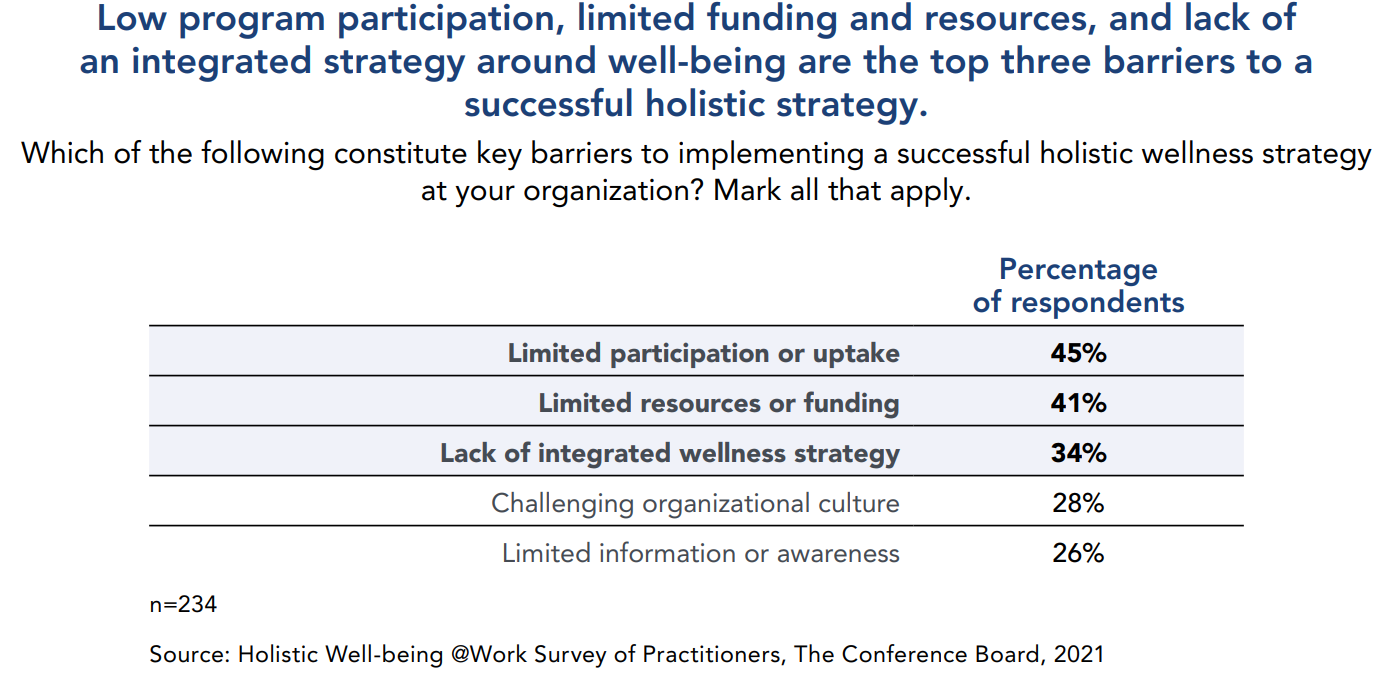|
Over the last year, workers around the world have been
struggling with a range of well-being issues, with mental health, burnout,
and isolation especially salient. As employers prepare for a post-COVID-19
world, a more holistic view of worker well-being is key to helping employees
at all levels manage stress and remain engaged.
A new report from The Conference Board, Holistic Well-Being @Work,
examines what organizations are doing to implement more comprehensive
well-being initiatives and offers recommendations for building healthier,
resilient work environments. The study finds that, while organizations
recognize the importance of a holistic well-being strategy, many struggle to
build a fully integrated approach, with low program participation and limited
resources cited as the top barriers to success.
“Heavy workloads and time constraints pose major barriers to using well-being
programs—more so than other factors,” said Laura Sabattini, PhD, Principal
Researcher, Human Capital at The Conference Board. “Implementing a successful
wellness strategy starts with looking at your work culture. Are there
communications, policies, and practices that might reduce workers’ ability to
engage with these initiatives or lead to burnout? Are senior leaders and
managers modeling healthy behaviors? For any holistic well-being strategy to
succeed, companies must nurture a work culture that supports and values these
healthy behaviors.”
For more findings from this research, read the executive summary of Holistic Well-Being
@Work.
|

No comments:
Post a Comment